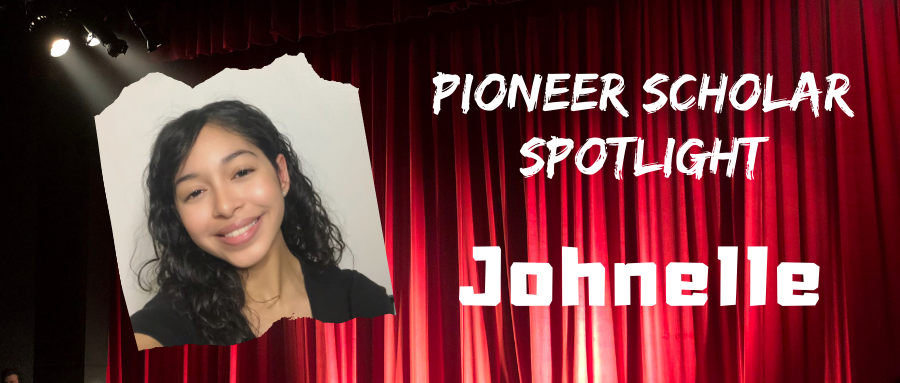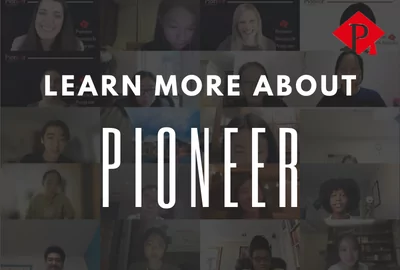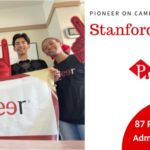“Whenever I look at something and I have an idea that might seem far fetched, I don’t completely knock it off. I’ve realized that I’m an individual, I’m entitled to have my own passions, and I’ll use them as inspiration.”
When Pioneer scholar Johnelle, from New York City, was in the third grade, she used to hang around her uncle’s auto shop after school, doing her homework and watching him work on cars. She was fascinated, not so much by the cars, but by how all the systems had to work together for a car to function properly. Her real interest was astrophysics, until she reached high school and realized that she wanted to work in a field that would be of real help to people, either individually or globally. Her Pioneer Research Project gave her an opportunity to do just that.
Johnelle’s research concentration was in material science, which took her in the opposite direction from astrophysics—right down to the interior level of matter, the elements that make up the materials we use. She studied electrical properties, optical properties, electrons and atoms. Her own research topic had to include developing a new material or increasing the efficiency of an existing one, and Johnelle’s interest in mechanical engineering drew her to electrical properties and nanotechnology. Her concern about climate change helped her formulate her research question: whether there might be a way to use carbon nanotubes to augment the efficiency of solar panels that remove carbon dioxide from the air. Her research suggested that the answer was a definite yes.
Writing a serious scientific paper was very satisfying to Johnelle. When it was completed, she realized that she had complete confidence in the work that she had done, no longer second-guessing herself or wondering if she had done it right. But the process was every bit as important as the completion of her work, because, Johnelle says, that’s how Pioneer helped her mature as a scholar and also as a person.
One of the most important aspects of her Pioneer Research Program for Johnelle was her interactions with her international cohort. Encountering students her own age from Bangladesh, China, South Africa, and California (the other side of the country from her home in New York), she realized that they shared not only the same pandemic problems, but also the same interests and the same love of learning—a rare experience for Johnelle. They became good online friends, she said, and have stayed in touch and hope to meet some day.
Academically, Johnelle thinks the necessity of learning good time management skills was one of the most important aspects of her Pioneer experience. Practicing critical thinking, learning to choose the best resources, and developing self-motivation skills were also, she says, ways that her Pioneer Research Project prepared her for her continuing studies.
Johnelle will be attending Columbia University, and she is glad she does not have to declare a major right away. Her experience with the new field of material science showed her that exploring things she doesn’t know about yet can lead her into new career possibilities. But whatever she pursues, Johnelle knows she wants it to help people in a practical way.


 Doing research is commonplace.
Doing research is commonplace.


